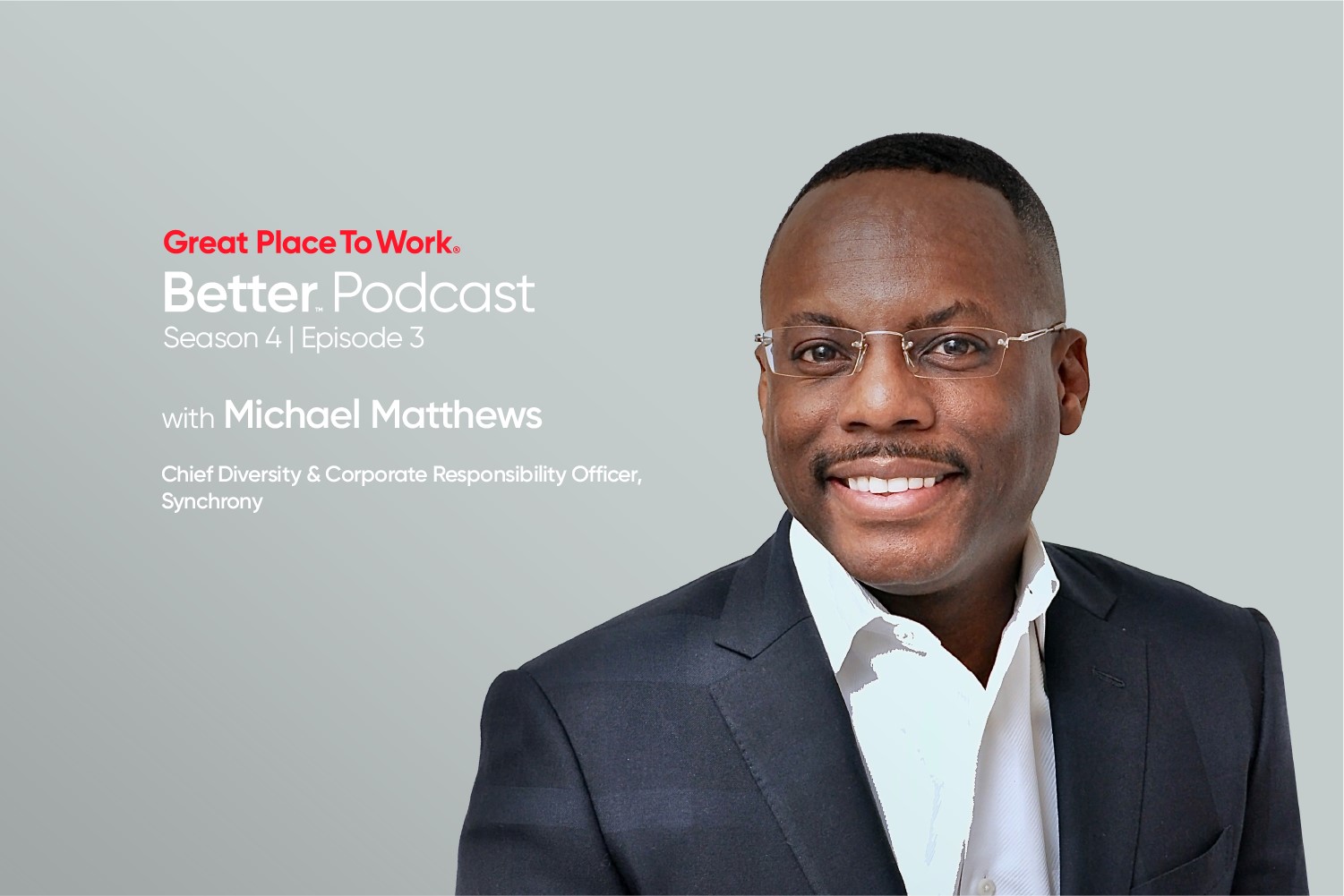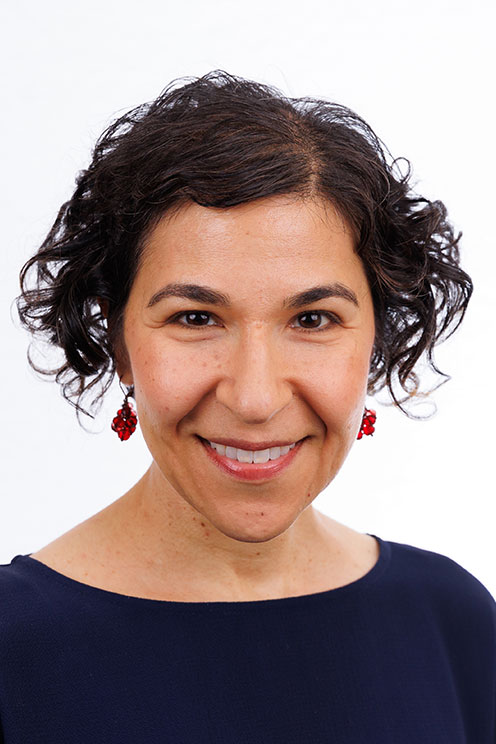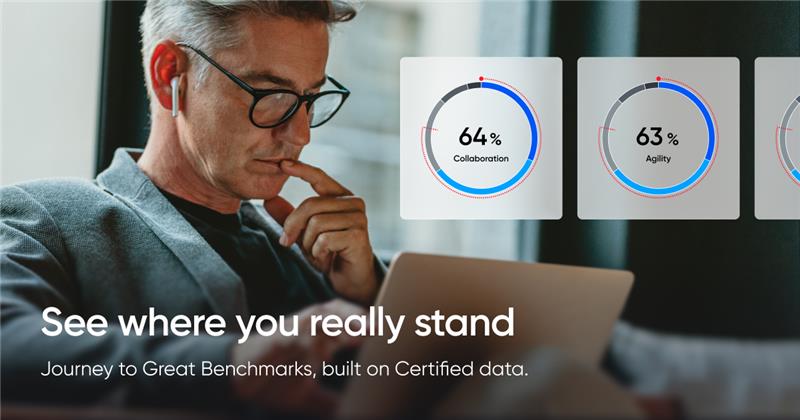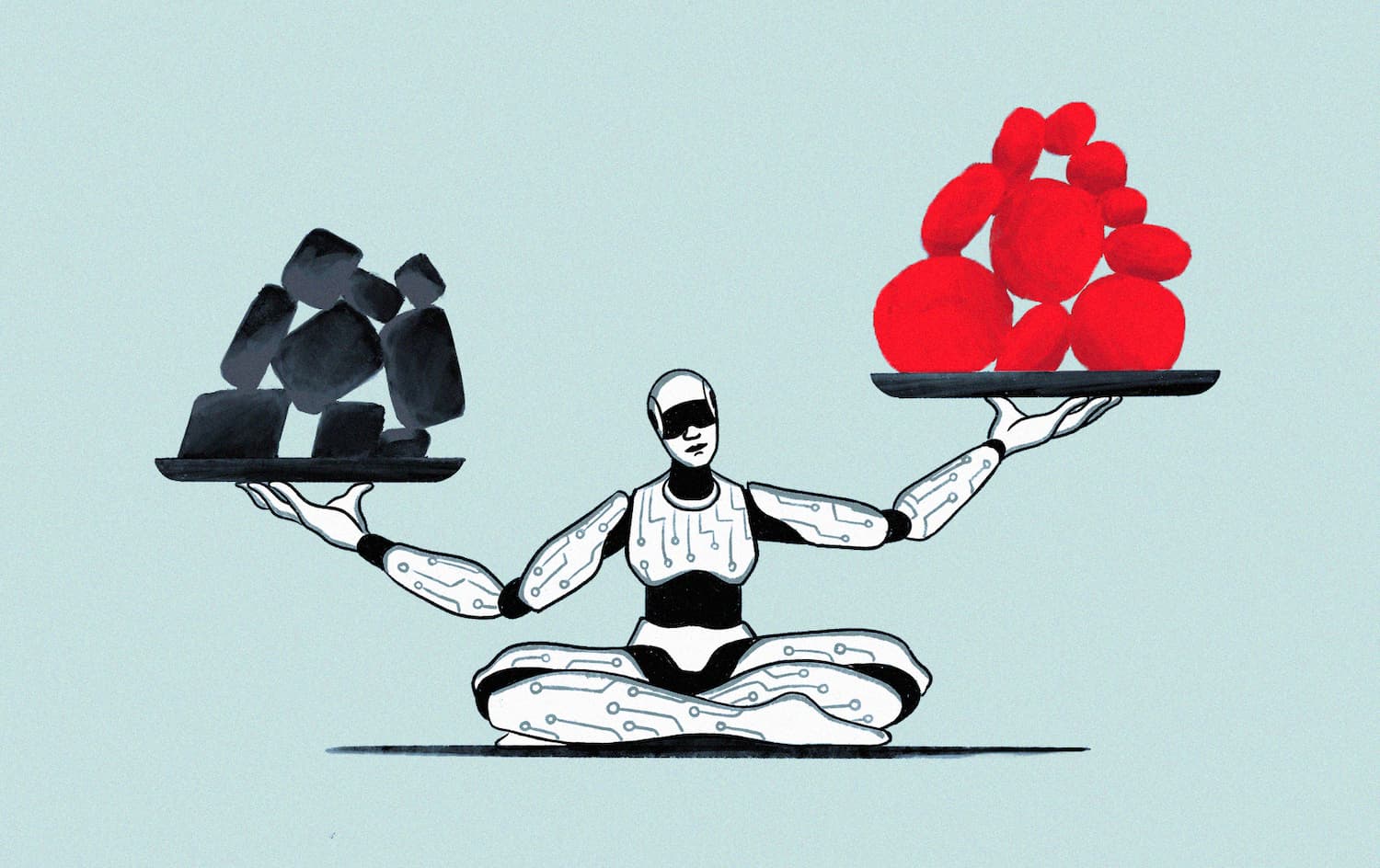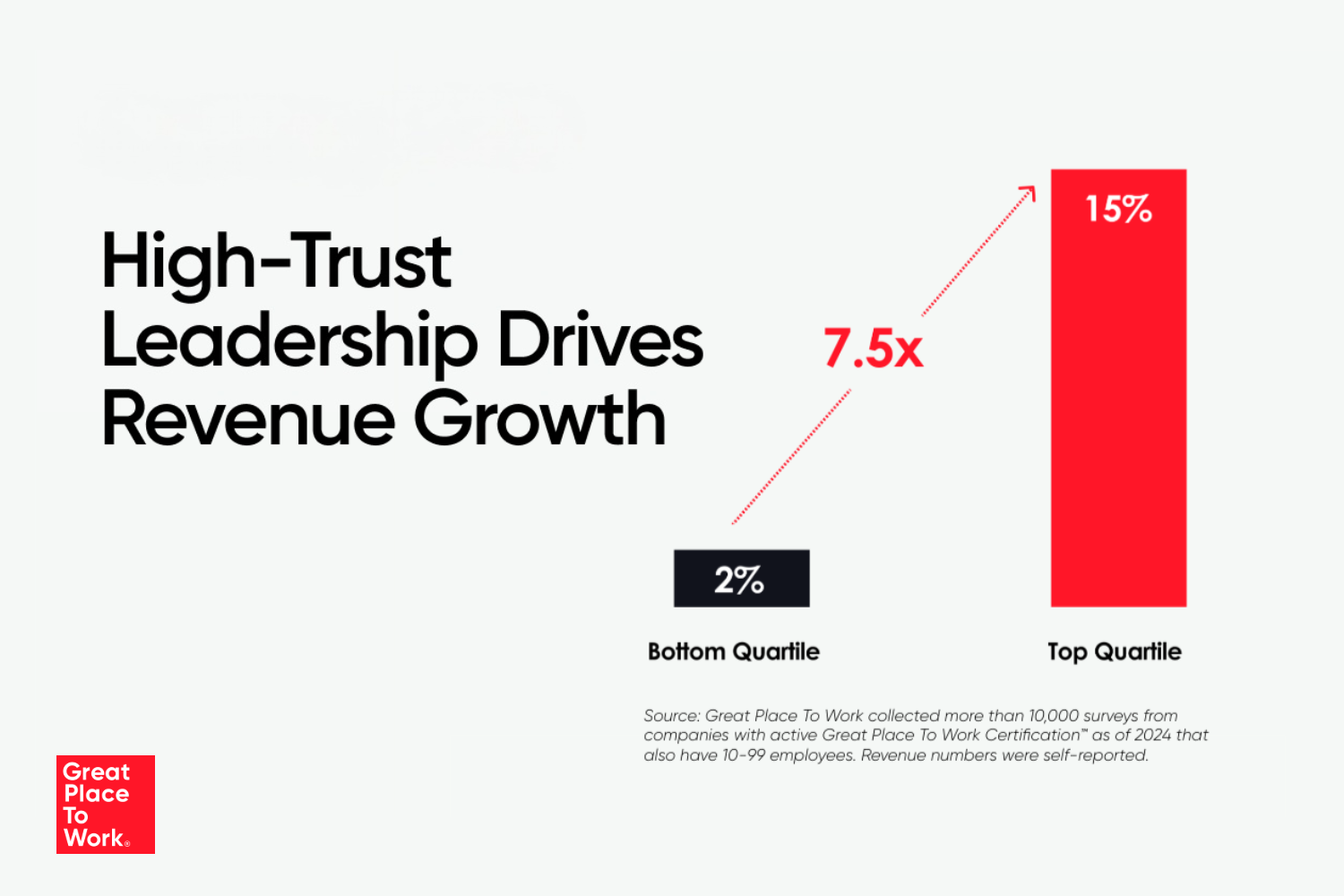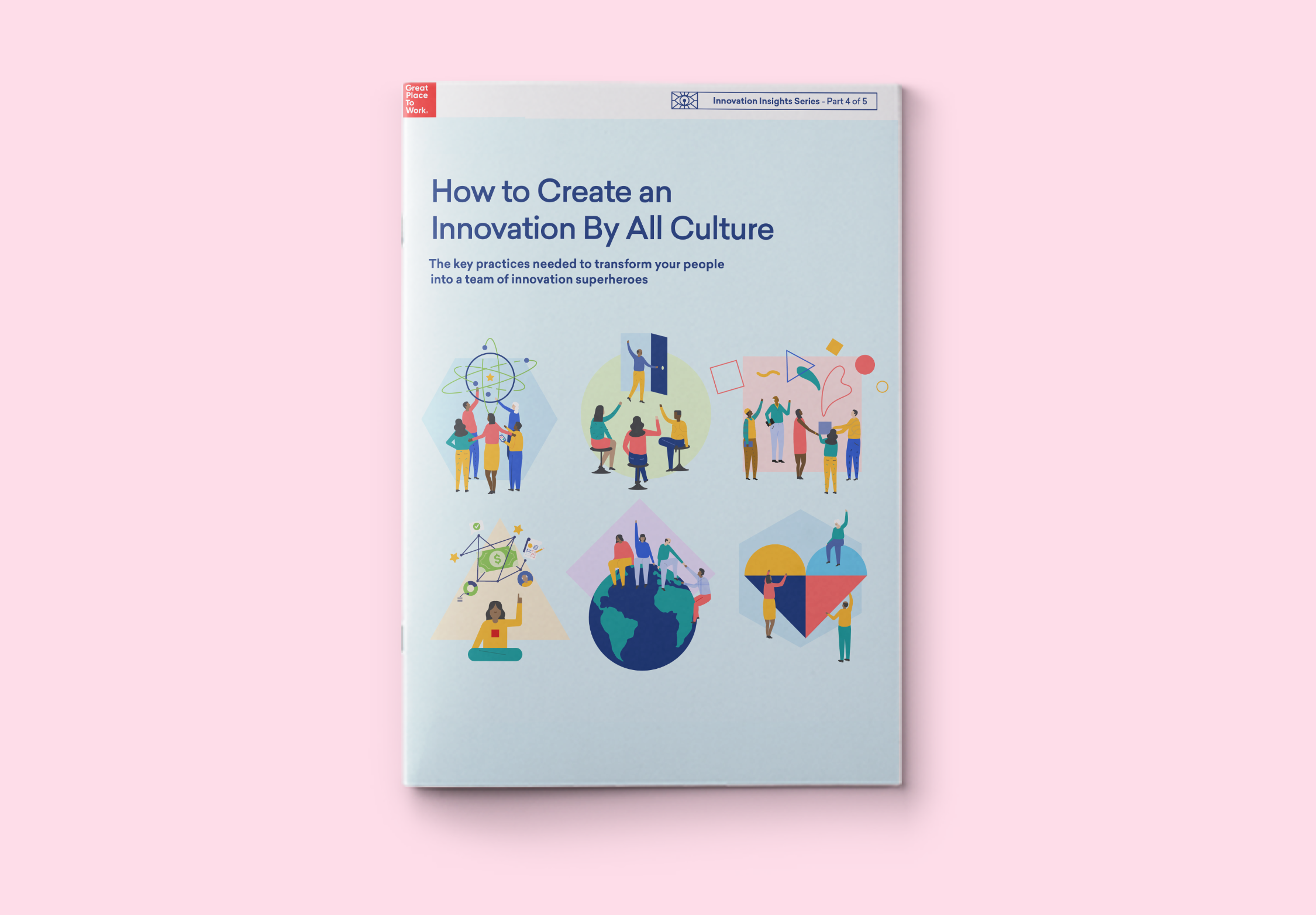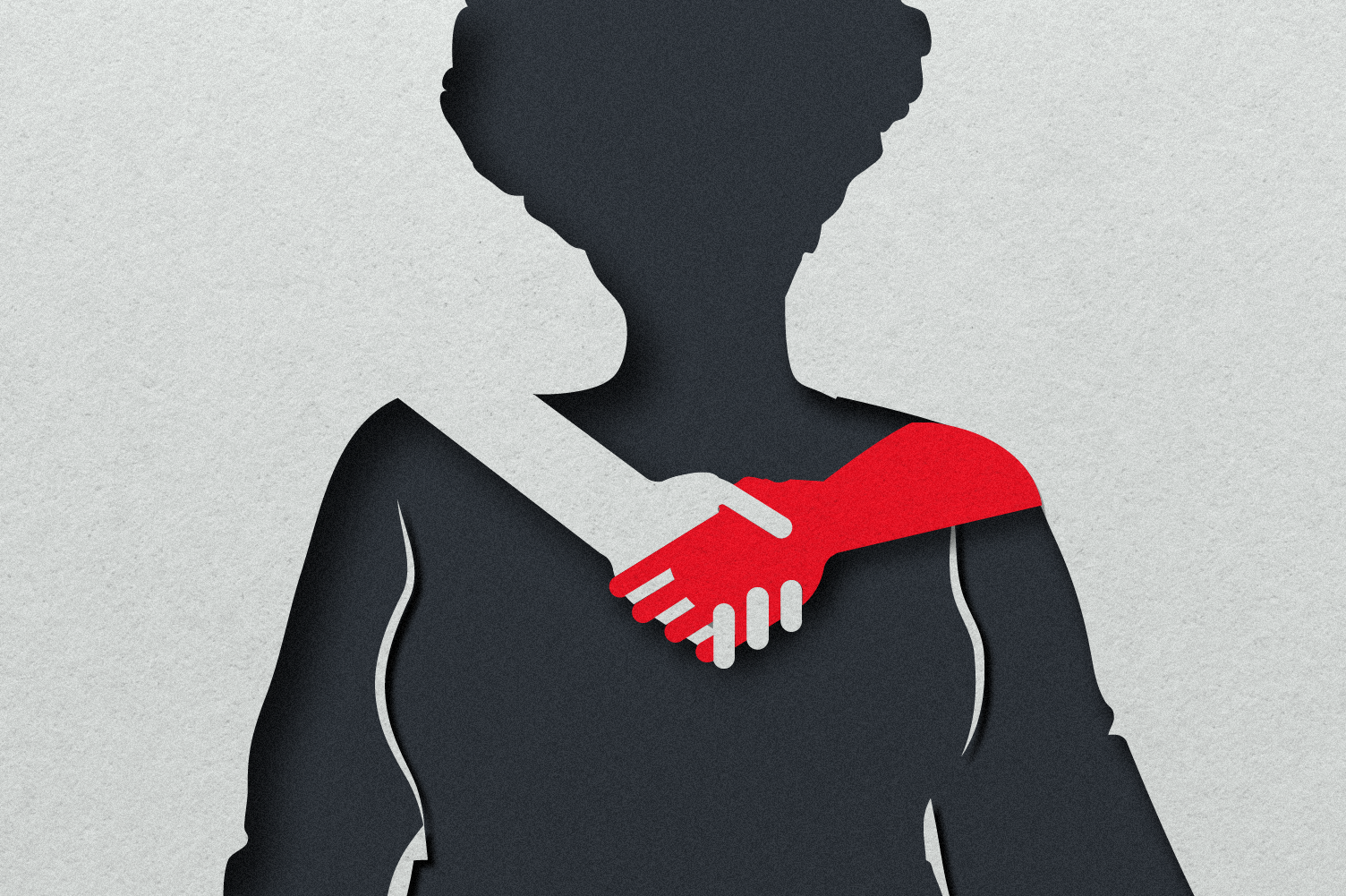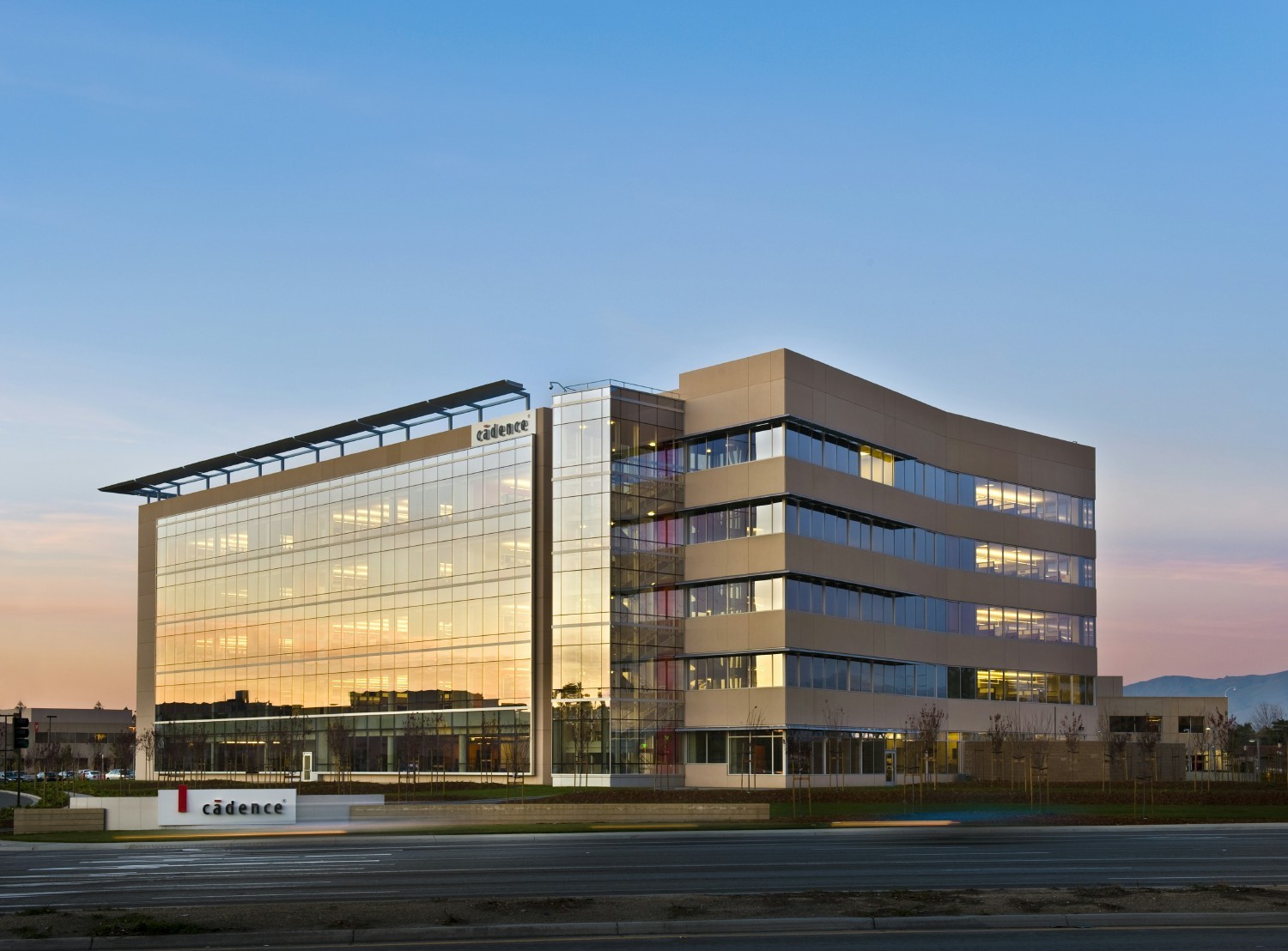Changing company culture, Company Culture, Developing Leaders, Diversity & Inclusion, Leadership & Management
“It’s expected for us as leaders to be able to deal with and support and engage with our employees and our teams being vulnerable, because the culture that we work in now—that's more accepted.”
Michael Matthews, chief diversity and corporate responsibility officer at Synchrony, talks about the power of vulnerability among leaders, and how vulnerability helps build trust and creates a more inclusive workplace culture.
He shared how leadership is evolving at Synchrony, what it means to be seen at work, and the importance for leaders to create a safe space where team members feel comfortable asking questions, and sharing their ideas and opinions.
He also offers helpful advice on how those charged with diversity efforts can build a strong partnership with their CEO and CHRO based on his own experience.
On how leadership is changing:
Our approach to leadership has evolved and continues to evolve because the workforce has evolved. How our workforce came to us, and how we interact now is 100% different than it was a couple of years ago due to COVID.
We started this initiative in large part due to our work with Great Place To Work and specifically The Great Transformation. We started what we call Impact Sessions, and they're specifically for leadership within Synchrony where we go in very deep on how our leaders become inclusive leaders.
How we lean into things like, how do you now lead in more of a virtual environment? How do you have difficult conversations? How do you give true and rich and impactful feedback? And how do you do it within this environment that's a lot more virtual versus when you were able to walk the floor and see non-verbals?
It’s a totally different experience. In many cases, it takes a different skillset. Through this work, we are continuing to evolve.
On the power of vulnerability among leaders:
It’s okay to be vulnerable. It's expected for us as leaders to be able to support and engage with our employees and our teams being vulnerable because it’s more accepted in the culture that we work in now.
We talk about how to have those difficult conversations, how to lean in, what to do when you don't know the answer or you're uncomfortable. How do you still support your employee, get information, and come back and continue to support? That's not easy.
We've taken it for granted that our leaders will just know how to do this. What we found is our leaders — whether they know the answer or don't, or know the right approach or not — there's a genuine desire to want to get it right and not make a mistake.
We have to get in front of that and make sure that they're equipped to handle the situation even if they don't know the answer.
Leaders are human beings, so they're not always going to know the answer. Or they may have to put their personal feelings aside to deal with an issue, or meet their teammate or employee where they are. That's a different skillset.
It’s been a journey, but it's really important and our leaders are so appreciative that we are addressing these types of things.
On how diversity and inclusion officers can build strong partnerships with their CEO and CHRO:
You have to do the work early on to establish credibility and be able to clearly articulate the why. The why it's important, the impact that it has made, and will make.
I think that doing that work and establishing credibility and saying, "Hey, here's where we think we are, and here's where we actually are, and here's where you said you want to be. So let's have that conversation."
By doing that type of work and having that transparency and that honesty with the data and what it is and what it isn't — that gets your CHRO and your CEO to lean in, and understand and value what you're doing even more.
And then understanding that once you gain credibility or establish that relationship, it's not just a given. You continue to earn that credibility and keep building that relationship.
Get more insights
Get more strategies from our workplace culture experts at our For All™ Summit, April 8-10, 2025 in Las Vegas, NV.
Subscribe to Better wherever podcasts are available so you don't miss an episode.
Roula Amire:
Welcome to Better, by Great Place To Work, the global authority on workplace culture. I'm your host, Roula Amire, Content Director at Great Place To Work.
Michael Matthews, Chief Diversity and Corporate Responsibility Officer at Synchrony, joins me on today's episode where we dive into all things leadership. We talk about how that's changing at Synchrony, and why, and the power of vulnerability among leaders. We also got into what being seen at work looks like and how tiring it can be to hide your authentic self. For listeners who can relate, we hope this is helpful.
I know you work closely with your CEO.
Michael Matthews:
I do.
Roula Amire:
Brian Doubles.
Michael Matthews:
I do.
Roula Amire:
I'm just wondering how does he, a Michigan State alum, feel about you, a University of Michigan graduate? Any underlying tension, talk about?
Michael Matthews:
No tension. It's just like a family thing. So my brother and I both went to Michigan and my two sisters went to Michigan State, and everything's great until we play each other. The same thing with Brian, it's all fun. In fact, it usually doesn't come up unless... I'm usually the one a little bit more sarcastic or sassy about it than he is. So it's a lot of fun to be from the same place.
Roula Amire:
Yes.
Michael Matthews:
Yeah.
Roula Amire:
Healthy rivalry.
Michael Matthews:
Healthy rivalry.
Roula Amire:
When I had Brian on, we spent way too long talking about sports before we got into the podcast, so let's get started. Well, Michael Matthews, welcome to the podcast.
Michael Matthews:
Thank you.
Roula Amire:
We are going to spend our time together talking about leadership. Before we dive in, I'm wondering, is there a moment or experience in your career that shaped your leadership?
Michael Matthews:
Yes. I wouldn't say a particular specific moment, but I would say there was a timeframe in my career that shaped my perspective on leadership. And it was really probably very early on when I was just out of college and trying to establish myself and get some roots and some momentum.
My first job, I had a tough time finding that, using air quotes, "Job," right out of college, and I took a job in a call center and as a frontline representative. And I found that it was very, very difficult once in that type of role to get others to see you as anything else, get to see your potential, get to see that you could possibly grow, et cetera.
And so those types of experiences, so I wouldn't say it was one experience, but a collection, attempting to be seen, attempting to just be given the opportunity to compete really shaped the way that I lead and the way that, in a career that's been primarily human resources, look at others.
Roula Amire:
And did you have an experience where you felt seen or you didn't?
Michael Matthews:
I've had times in my career where I wanted to make a career change, and the company... So for example, very early on I was in a risk function in a prior company and I knew I wanted to pursue HR. And there was an HR opportunity available and the risk leaders did not want to let me leave to pursue HR.
And it was actually a sponsor who stepped in and advocated for me and said, "Hey, this guy has potential, and we can either let him explore it in HR or he'll end up leaving the company." So that type of advocacy I think came directly because somebody did see me and cared enough about me to advocate on my behalf.
And I've also had other times in my career where maybe I've hesitated a little bit and I was a little resistant to take a jump or take a leap or take on something where I thought maybe I'm not ready or wasn't big enough, where I had a mentor or mentors step in and say, "No, you're ready. It's time to jump. It's time to fly, bird." So I think that definitely comes from people seeing you and acknowledging not only you as an individual but your potential.
Roula Amire:
I totally agree. I think being seen at work and recognized for your potential is a sign of a great leader.
So to set the stage for our listeners, Synchrony is one of 11 organizations who are part of the Great Transformation, which is a three-year initiative to build a blueprint for the future of work around new ways to hire, train, and promote employees and leaders.
The initiative is in year two, and there's a lot being studied and yet to be revealed, but training leaders to lead differently is central to making any kind of change happen in organization. I know your approach to leadership at Synchrony is evolving, be that in terms of mindset or behaviors or both. Can you share a little bit about that?
Michael Matthews:
I would say yes. Our approach to leadership has evolved and continues to evolve because the workforce has evolved. If we look at just our workforce, probably unlike many other companies, how our workforce came to us or how we interacted now is 100% different than it was a couple of years ago due to COVID.
We started this initiative in a large part due to our work with Great Places To Work and specifically the Great Transformation, our project work, we started what we call these Impact Sessions. And they're specifically for leadership within Synchrony where we go in very deep on how our leaders become inclusive leaders.
And so how we lean into things like how do you now lead in more of a virtual environment? How do you have difficult conversations? How do you give true and rich and impactful feedback? And how do you do it within this environment that's a lot more virtual versus when you were able to walk the floor and see non-verbals and do things like that?
And it's a totally different experience. In many cases, it takes a different skillset. And through this work, we are now continuing to evolve. We are finding out that where we thought we were strong in this environment, we have different opportunities that we need to lean into.
It's been very interesting and kind of enlightening, and we're finding out that not only is it helpful for our leaders, but they appreciate us creating this space and creating this platform so they don't have to feel like they're exposing themselves by addressing these opportunities. But we've created it in a very natural way and where we're all doing it together and we're all evolving together. So it's been an exciting journey. It really has.
Roula Amire:
As you said, I'm sure they appreciate the opportunity to learn with other leaders and be able to say, "Hey, this works really well for me," or, "This isn't working," or, "What's working for you and your team?"
Michael Matthews:
Like you said, you're receiving some instructor-led courses, but we're also discussing and working together and evolving as a team. And I think that creates some safety that gives people permission to be vulnerable, that makes you feel less unique because you're going through these experiences and sharing them with peers who you realize that, "Oh, this person is going through the same thing I am and doesn't make sense." So that approach has worked really well for us.
Roula Amire:
Mm-hmm. And I also think a new, I don't know if this is the case, but a mindset for leaders is being it's okay to be vulnerable.
Michael Matthews:
Yeah.
Roula Amire:
That's the only way you're going to learn. It sounds like that's what you're experiencing.
Michael Matthews:
Yeah, it's okay to be vulnerable and it's okay, it's expected for us as leaders to be able to deal with and support and engage with our employees and our teams being vulnerable, because the culture that we work in now, that's more accepted, that's more common.
And so we do talk about how do you have those difficult conversations? How do you lean in? How do you handle it even when you don't know the answer or you're uncomfortable? How do you still support your employee, get information and come back and continue to support? That's not easy. And I think we've taken it for granted that our leaders will just know how to do this.
And what we found is our leaders, whether they know the answer or don't, or know the right approach or not, there's a genuine desire to want to get it right and not make a mistake.
And so what we have to do is to get in front of that and make sure that they're equipped to handle the situation even if you don't know the answer, how to handle it when you don't, and still make your team feel supported and like their leader is there for them.
So it's really been a journey, but we found that it's really important and our leaders are so appreciative that we are addressing these types of things because we've taken away that, I'll say, for lack of a better term, shame of not knowing. We're not asking you or expecting you to tell us. We're making an assumption, "Hey, these are some skills that you need and we're going to assume that maybe all of you don't have them, so let's talk about it and let's get [inaudible 00:09:44] out there for you." And we found that people are really appreciative of that.
Roula Amire:
It also must be a relief.
Michael Matthews:
Yeah. I mean, I think it would be. I mean, it's a relief for me. There are some things, and especially in my space when we're talking about issues around diversity or equity, those can be very uncomfortable.
But if we want to have a culture where it's as inclusive as we want it to be, then these issues are going to come up and employees are going to talk about these things or ask questions that may be uncomfortable or express issues or concerns.
And leaders are human beings, so they're not always going to know the answer or even want to have this conversation. Or you may have to put your personal feelings aside to deal with an issue or meet your teammate or your employee where they are. That's a different skillset. And we talk about all those types of things in our Impact Sessions.
Roula Amire:
And we're talking about the workplace, but everything you've been saying, we could step outside of the workplace and it applies. It's just being humans, and human to human communication.
Michael Matthews:
That's right. Our tenets is to bring your authentic self to work. And so part of your authentic self many times is stuff that comes outside of work and you're bringing it into the office or the workplace with you. And so I think we would be a little naive if we didn't assume that that happens and we weren't prepared as much as we can be to deal with those types of situations.
Roula Amire:
So how does your approach to leadership, including new mindsets, behaviors and so on, impact business performance and, quote-unquote, "The bottom line?"
Michael Matthews:
I think it's a simple answer. We know that our employees or our workforce are our number one resource, and our job as leaders is to create a space where they can be as effective and as productive as possible and also pursue their own career aspirations.
And so by doing that, you're going to lean into being effective leaders, being the most effective leaders you can, which includes creating an inclusive workspace, which includes being able to have difficult conversations when they come up, which includes giving that sometimes tough but constructive feedback when it's necessary, which includes encouraging, promoting, sponsoring employees, but sometimes having that tough conversation that, "Hey, this isn't working out." And doing that in a way that's constructive and not destructive.
And so all of those things, we believe by investing that way in our workforce through those relationships with individual employees makes them more productive, definitely supports or promotes the bottom line.
Roula Amire:
Mm-hmm. And you're describing a people-first culture, and we know people-first cultures, the result of that is always higher productivity, innovation rates, referrals.
Michael Matthews:
Yeah. Retention.
Roula Amire:
Retention.
Michael Matthews:
Yes.
Roula Amire:
It has that wonderful ripple effect.
Michael Matthews:
Yes, you're exactly right. And we focus so much on retention. But you're right. I mean, if people feel that the workplace is inclusive, they are more creative, they are more innovative. And in the space that we work in, that is so important, just creating relationships through marketing and through campaigns and through servicing the customers.
When our people feel comfortable and they feel supported, all of those creative juices are going to be more accessible. And to be frank, they're going to feel more committed to Synchrony and the success of the business and to their specific leaders.
They say people don't leave companies, they leave leaders, but that impacts the company. So when you invest in them, they return the favor and invest and are loyal to us. And that's what we continue to see over and over again.
Roula Amire:
I know at Synchrony there's a strong partnership between you, your CEO, Brian Doubles, and DJ Casto, your EVP, CHRO. The three of you work very closely together, very well together and have this very powerful partnership, but that's not the case at many companies who are more siloed. How would you suggest they start to build this type of partnership?
Michael Matthews:
First of all, I'm starting off at a great starting point because Brian and DJ truly do, we are really aligned. That being said, I do think you have to do the work early on to establish a credibility and to be able to clearly articulate the why. The why it's important, the impact that it has made and will make.
I mean, we've talked a lot about this in this conversation, how the dynamics of a workforce can really impact the company's bottom line, those things.
So when I got into the role, and Brian has talked about this, we kind of took for granted, because Synchrony has such an inclusive culture, that we were great on all fronts. Of course our numbers are great, of course because we're inclusive. We embrace inclusivity.
When I ran the numbers from a representation standpoint, and I came and I spoke to, he invited me to his ELT member meeting and I spoke to them, and our numbers from a financial services perspective, they were good. They were good. But when you looked at them over time, they were not moving, they were stagnant, where we would have the impression that we were improving, [inaudible 00:15:31] doing even better than we actually were.
And so I think that doing that work and establishing credibility and saying, "Hey, here's where we think we are, and here's where we actually are, and here's where you said you want to be. So let's have that conversation." And so by doing that type of work and having that transparency and that honesty with the data and what it is and what it isn't and not just blowing smoke, that gets your CHRO and your CEO to lean in, understand even more or value what you're doing and the work you're doing even more. And so I think that's part of it.
And then I think understanding that once you gain credibility or establish that relationship, it's not just a given. You continue to earn that credibility and keep building into that relationship.
So we talk about data and we talk about that process, but at Synchrony I've evolved, our leaderships evolved, the expectations of my team has evolved, and I can't keep delivering the same thing.
So if I look at data, the level of data that we started off with, it was good, but as they became more sophisticated, it wasn't enough just to provide representation data. We had to peel that onion even more and give them how they could use the data specifically to improve. And we had to parse it specifically for each ELT member and make it a lot more specific to address concerns and how to improve, et cetera, et cetera.
I don't want to get too deep into the weeds, but we have to continue to evolve and grow and develop. As we are doing that, we continue to show our value to the business and to our CHRO and our CEO. And because of that, I think the relationship continues. It just didn't establish that cohesiveness, but it continues to stay tight over the years.
Roula Amire:
Switching gears a bit, let's talk about you.
Michael Matthews:
Okay.
Roula Amire:
If you could go back in time, what advice would you go back and tell your younger self?
Michael Matthews:
Ooh, great question. I know I would tell myself not to spend so much time and energy trying to fit a mold. And so I think when you're earlier in your career, I can speak for myself, you have an image or an idea of what a professional looks like, sounds like, dresses like, acts like, and that's changed over the years. And then you come in contact with people who you respect or people of authority or power, positional power, that you may try to mimic.
And in my case, there were different qualities or characteristics that I tried to suppress or not be, or you don't want to be too this or too that or whatever. And not only is it exhausting, and not only is it not being your authentic self, but what it's doing is it's, to a certain extent, at least in my case, was not embracing the things that got you there, that got you into the rooms that you're already in, the reasons why people selected you or gave you an opportunity. I wasted a lot of time early in my career in doing those types of things instead of leaning into what uniquely makes Michael Michael.
Roula Amire:
What types of things?
Michael Matthews:
I'll give you a very basic example. I remember earlier on in my career, I worked for a leader who was very buttoned up, extremely particular. I'm more of a casual, informal style person.
And I found when I was meeting with her initially, I tend to talk with my hands, and I found her staring at my hands. So then the next meeting I was like, "Okay, stop talking with your hands." So I ended up sitting on my hands, I mean, just so I wouldn't talk with my hands.
And the thing that broke the ice with us is on my third or fourth meeting I'm like, "I am exhausted." Because her face was very still and it's just no expression and very intense and she didn't emote. And so I just that, "Well, I'm exhausted." And she just busted out laughing. She's like, "What are you talking about?"
And I shared that, and she's like, "No, look, I love those qualities about you. That's why you're on this team. I know that I come across and sometimes I'm misunderstood or assigned characteristics that I might not be feeling, and you are able to build these relationships that I am not, and that's one of the values that you bring to the team."
And so that's just a little example of I was going way out of my way to not be me, and the thing that made me me was actually one of the things that she found the most valuable.
Roula Amire:
Is there a book or podcast you'd recommend to your peers to listen to or check out?
Michael Matthews:
We do an annual diversity meeting. We call it our Global Diversity Experience. And we have a couple of keynotes and speakers every year.
And this last year we had a speaker, Michelle MiJung Kim, she wrote a book called The Wake Up. And it's not specifically on leadership, but it talks about diversity and leaning into individuals and understanding the role that we as individuals play, and that talks about privilege and white privilege and navigating that and not weighing into and seeing people.
And so I think as leaders, leaning into gaining that skillset, understanding the background and the implications and how people react and perceive things and how it affects how they navigate professionally and personally, as a leader, I think that that is a very important skillset to have. So that's what I would recommend right now.
Roula Amire:
Well, Michael, thanks for joining me today on the podcast. I enjoyed the conversation.
Michael Matthews:
So did I. Thanks for having me. This was great.
Roula Amire:
Thanks for listening. If you enjoyed today's podcast, please leave a five-star rating, write a review, and subscribe so you don't miss an episode. You can stream this and previous episodes wherever podcasts are available.


